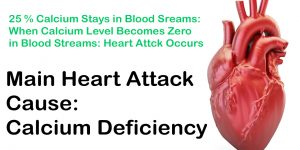-
-
-
-
-
-
-
-
-
As with so many illnesses, family history does play a big role. I’m glad you’re learning how to manage the disease!
-
With high pretension I believe it is in the family but one can avoid it at the early stages of life by doing exercises, eating healthy and having regular checks with him doctor if you know a family member suffers from it. In old age it seems like it comes with age, people develop hypertension for various reasons, it could be bad eating habits or stress and such like things but again it can be controlled with medication.
-
Hypertension is a common problem of the modern age and every man and woman fall prey to this mysterious disease and upsets human minds anon within seconds at home and out of home. I think it is curable disease if we care for it properly.
Hypertension is a major risk factor for stroke (ischaemic and haemorrhagic), myocardial infarction, heart failure, chronic kidney disease, peripheral vasculardisease, cognitive decline and premature death. Untreated hypertension is associated a progressive rise in blood pressure, often culminating in a treatment resistant state due to associated vascular and renal damage.
Blood pressure is quantified as diastolic and systolic pressures measured in millimetres of mercury (mmHg). The diastolic pressure represents the pressure during ventricular relaxation in diastole whereas the systolic pressure represents the peak pressure due to ventricular contraction during systole. Either or both pressures have specified upper limits of normal and elevation in either or both pressures are used to define hypertension.
Blood pressure is normally distributed in the population and there is no natural cut-point above which “hypertension” definitively exists and below which, it does not. Epidemiological studies demonstrate that the aforementioned disease risk associated with blood pressure is a continuous relationship and above blood pressures of 115/70mmHg, the risk of cardiovascular events doubles for every 20/10mmHg rise in blood pressure.
The threshold blood pressure determining the presence of hypertension is defined as the level of blood pressure above which treatment has been shown to reduce the development or progression of disease. Primary hypertension was previously termed “essential hypertension” because of a long-standing view that high blood pressure was sometimes “essential” to perfuse diseased and sclerotic arteries.
It is now recognised that the diseased and sclerotic arteries were most often the consequence of the hypertension and thus the term “essential hypertension” is redundant and the “primary hypertension” is preferred.
Primary hypertension refers to the majority of people with sustained high blood pressure (approximately 90%) encountered in clinical practice, for which there is no obvious, identifiable cause. The remaining 10% are termed “secondary hypertension” for which specific causes for the blood pressure elevation can be determined (for example, Conn’s adenoma, renovascular disease, or phaeochromocytoma).
Primary hypertension is remarkably common in the UK population and the prevalence is strongly influenced by age and lifestyle factors. Systolic and/or diastolic blood pressures may be elevated. Systolic pressure elevation is the more dominant feature of hypertension in older patients and diastolic pressure more commonly elevated in younger patients, (those less than 50 years of age).
At least one quarter of the adult population of the UK have hypertension, (blood pressure ≥140/90mmHg) and more than half of those over the age of 60 years. As the demographics of the UK shifts towards an older, more sedentary and obese population, the prevalence of hypertension and its requirement for treatment will continue to rise.
-
-
-
It is delicious but i think first I tell you what is orange and apple? Peel the apple with a knife or a swivel peeler. Chop the apple into small chunks and discard the core and pips. Put all of the fruit, orange juice and ice (optional) into the blender. Blend for 20 seconds or until smooth.
Apples, oranges and grapes provide carbohydrates, vitamins and minerals. All three make excellent low fat snacks. You can also add nutrients to other meals by adding these fruits to yogurt, salads or side dishes. All values listed are for one cup of fruit. The skin must be left on grapes and apples for the most nutritional benefit.
Minerals in Fresh Smoothie
Most fruits provide at least a small amount of potassium and apples, oranges and grapes are no exception. One cup of apples supplies 3 percent of the daily value, grapes provide 5 percent and oranges supply 7 percent.Potassium assists with water balance in your body. It is also important for those with high blood pressure because it can help to counterbalance the negative effects of sodium on blood pressure. Grapes are also high in copper, with one cup providing 21 percent of the daily value.
Copper helps you form red blood cells, assists in the production of bone and supports healthy skin. Oranges contain a small amount of calcium, which helps you form strong bones and teeth. One cup provides 7 percent of the daily value.
Fresh Smoothie and Vitamins
VitaminsAll three fruits also contain vitamin C, with oranges providing the largest percentages of the daily value. One cup of oranges supplies over 100 percent, one cup of grapes supplies 18 percent and one cup of apples provides 6 percent.
Vitamin C helps you fight damage to your cells that occurs as fat is oxidized. Grapes also supply 10 percent of vitamin B-6, which aids in red blood cell formation, and 18 percent of vitamin K, which helps your blood clot. Oranges also supply a significant amount of three B vitamins: thiamin, pantothenic acid and folate. One cup supplies 13 percent of thiamin, 9 percent of pantothenic acid and 14 percent of folate, all three of which support the nervous system and aid in metabolism.
-
-
-
-
-
-
-
-
-
-
-
-
- Load More









